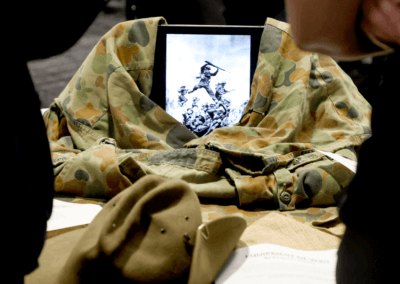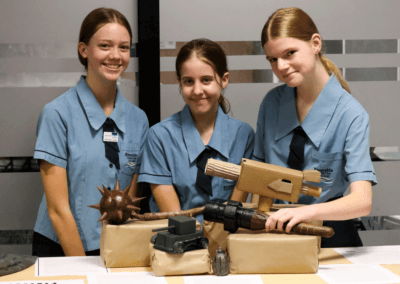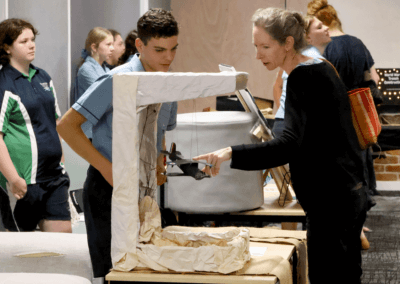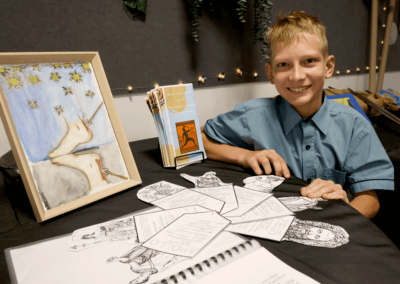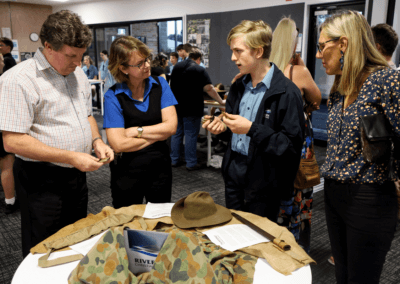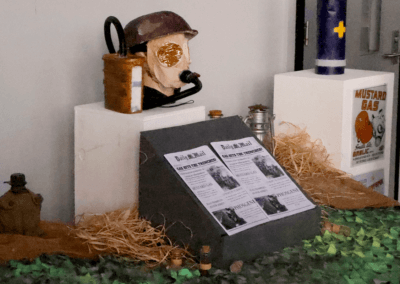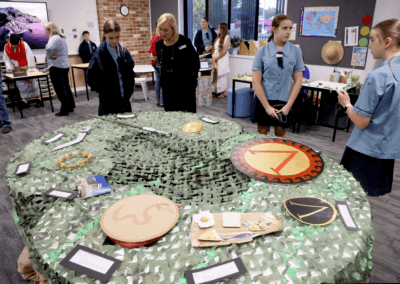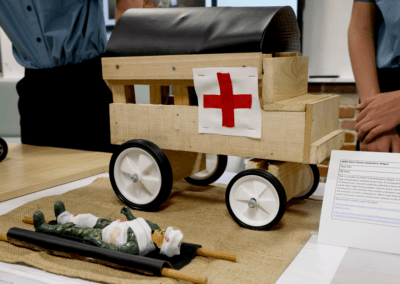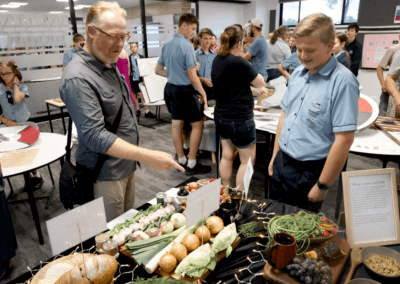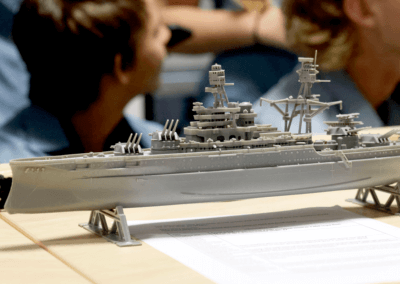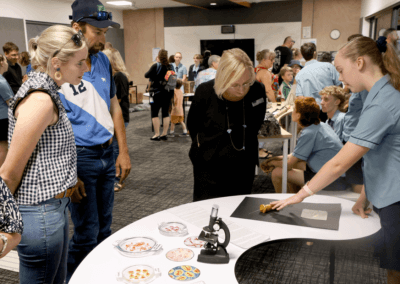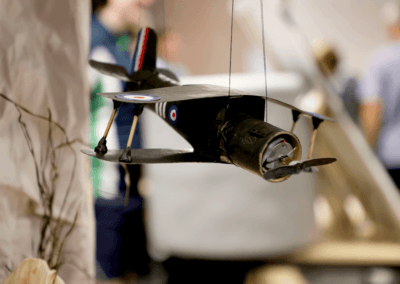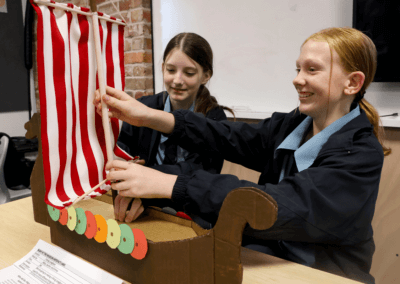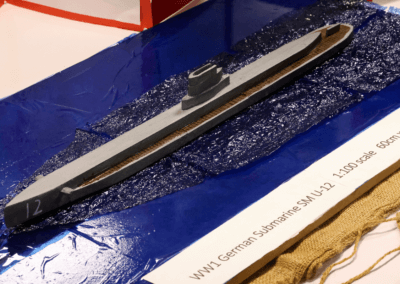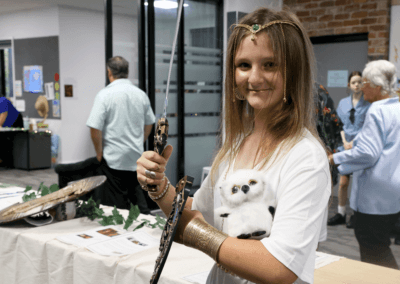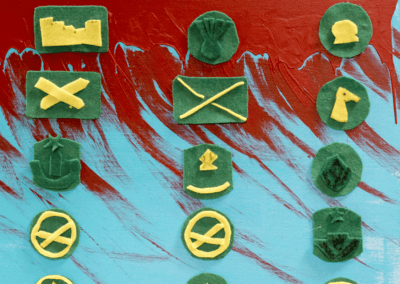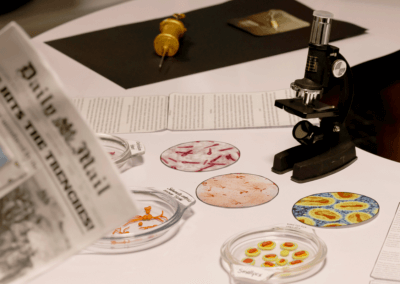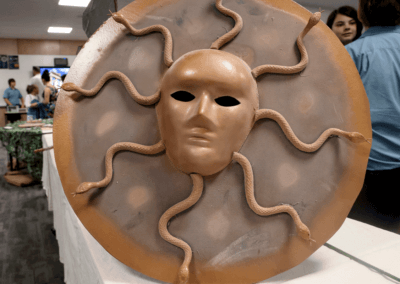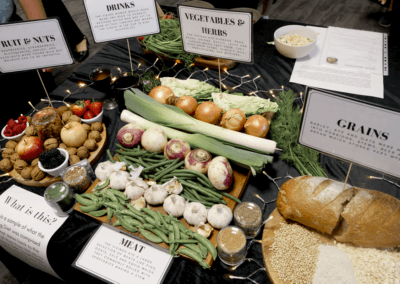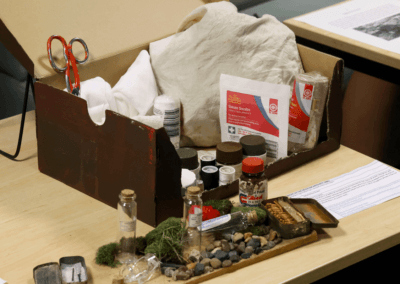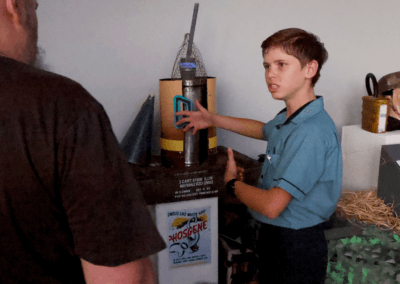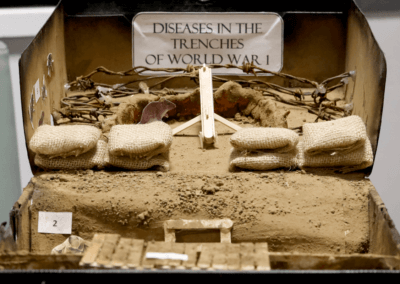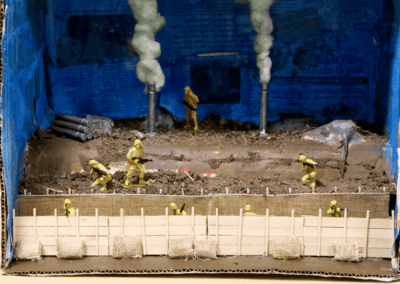Middle College
Middle College
Middle College is designed to cater for the unique educational and pastoral needs of the young adolescent learner.
Our Middle College is a unique and vibrant area of the College. We have a very strong pastoral care focus that ensures the students continue to have a trusted adult within their educational setting. Students touch base with this pastoral care teacher at least two times a day to help with organisation or help them navigate curriculum or pastoral issues. Our homeroom structure allows for a gradual release of responsibility in both learning and socialisation. This structure allows children to feel independence at the same time as having support mechanisms in place to help them navigate adolescence. We collect data on pastoral care and student relationships to ensure we are very aware of our student’s relational needs and have individualised homeroom pastoral care programs based on this data to ensure a sense of belonging and community that makes Middle College a standout.
We have state of the art facilities in our Middle College Precinct and our classrooms are purpose built to meet the needs of our teaching pedagogy. We have flexible room arrangements for students to choose from and all furniture sections are designed so they can be moved and re-configured quickly to suit the teaching and learning activity, whether it be collaboration, innovation, or reflection.
While allowing for the smooth transition between the traditional Junior and Senior educational models, each grade within Middle College identifies the changing needs of our young people as they enter Middle College in Year 6, and exit at the conclusion of Year 9.
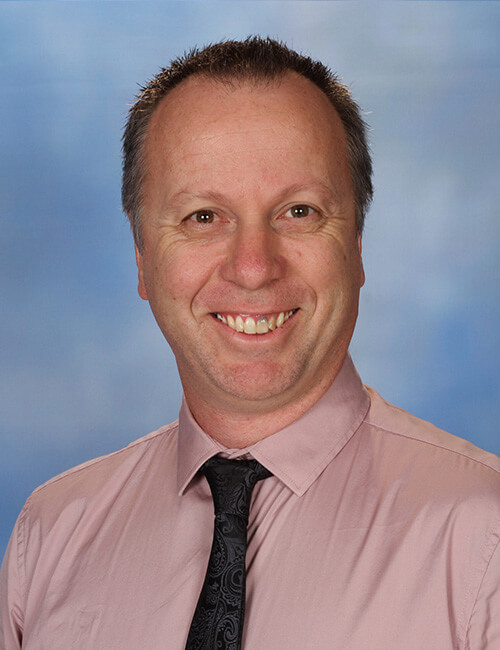
Tim Hadfield
Head of Middle College
Stages of Your Adolescent Child’s Journey
Year 6 – Transitioning, relationships (working together)
Students are supported as they commence the transition from Junior to Middle College. In the early stages of adolescence, they start asking questions about who they are and where they belong. The foundations on which relationships were built begin to change, highlighting the need to develop the skills required to build and maintain friendships, and to work together cooperatively.
Year 7 – Growth mindset, social-emotional awareness
At this stage, the students are beginning to think more abstractly, they understand that there are ‘shades of grey’, and understand concepts such as justice, and begin to develop their own values. Discovering differences in experiences, beliefs and morals between peers, increases the need to develop a greater level of social-emotional awareness.
As students are taken to a deeper level of thinking, they are also challenged to believe that their ability is not something they are born with but is something to be developed through effort and strategy.
Year 8 – Belonging, experimentation, community-focused
With a greater understanding of how positive relationships are built and maintained, and the ability to think at a deeper level than ever before, one of the main priorities for young adolescents is the need to fit it or belong.
As they search for greater independence and learn more about their place in the world, they begin to experiment and take risks. While these words can cause alarm, it is important to provide opportunities for these things to occur as part of a learning process, to prompt further questioning, lead students to a deeper understanding and provide a richer learning experience.
The greater awareness of the world around them and the further development of their own values and morals, makes this an ideal time to broaden their area of focus by looking at the community around them. They explore what it means to be part of the community and the importance of serving within it.
Year 9 – Belonging, future-focused, active citizenship
The questions, experimenting and further understanding of the world around them continue in this stage, but some further clarity of their sense of belonging and who they are as people, begin to emerge. This further development of who they are and where they fit in, allows them to learn more about what it is be an effective citizen who plays a role in the community and has a positive impact.
Having made their way through Middle College and engaged in developmentally appropriate subjects and learning experiences, areas of interest have become more refined, and skills continue to develop. As their possible options begin to appear, students become more future-focused. Their learning experiences, contexts and opportunities align themselves with this transition, to prepare them for what comes next.
Curriculum
Students in Middle College also start to have some choice in their elective subjects; this allows a taste of subjects they might like to pursue later in their Senior schooling. We begin elective subject rotations from Year 6; and elective subject choices from Year 7 – Year 9. Students choose electives from the Arts and Technologies learning areas.
In 2024 Middle College students will engage with the Version 8.4 of the Australian Curriculum and undertake studies in the following learning areas:
- English
- Mathematics
- Science
- Humanities and Social Sciences (HASS)
- Health and Physical Education (HPE)
- The Arts
- Technologies, and
- Languages (Japanese)
Student Opportunities
Riverside Rigorous Reading Program
Year 6 – 8 students also engage with a weekly session focused on Riverside’s Rigorous Reading program. This unique program has outstanding success because it embeds reading and writing skills into curriculum learning, meaning greater engagement, and understanding for students because it relates so closely to what they are already learning. Teachers within the College are assigned expert mentors and the program is delivered weekly to maximise the impact on student results.
